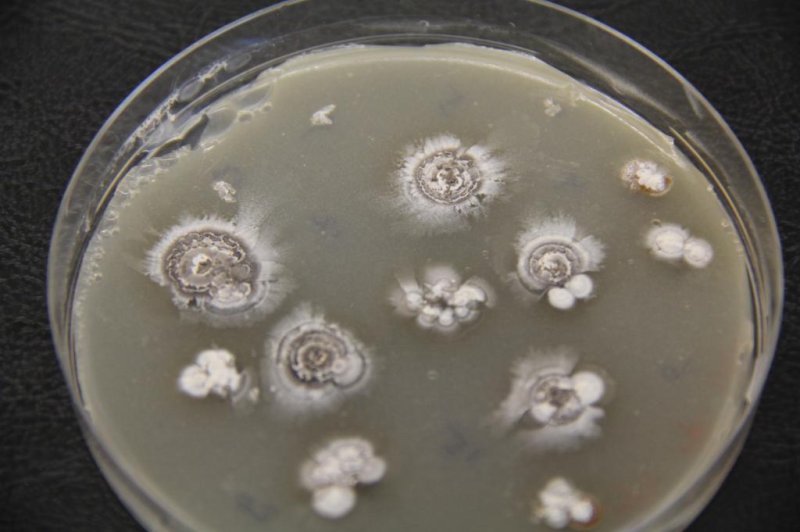Researchers believe bacteria found in soil -- similar to the pictured culture of a thiocarboxylic acid producing a strain of bacteria -- may harbor a potential game-changer for drug design. Photo by Shen Lab/The Scripps Research Institute
June 18 (UPI) -- The molecules of bacteria found in soil may lead to the development of better drugs, according to a new study.
Scientists at Scripps Research in Jupiter, Fla., investigated the "natural products" made by organisms such as soil-dwelling bacteria. Findings from these bacteria-derived molecules, which are called thiocarboxylic acids, were published Monday in the journal Nature Communications.
"We use natural products as an inspiration for chemistry, biology and drug discovery," Dr. Ben Shen, professor and co-chairman of the Department of Chemistry at Florida's Scripps Research, said in a press release.
Shen became interested in the acids because they are in nature but similar to lab-made molecules called carboxylic acids.
He said they are good "warheads" because they can find biological targets suitable for antibiotics, heart disease medications and other treatment.
The Scripps researchers specifically examined two natural products -- platensimycin and platencin -- which other scientists have investigated as potential antibiotics.
They were surprised to find for the first time they actually are made by bacteria as thiocarboxylic acids after being thought to be carboxylic acids. The researchers then found the exact genes, and the enzymes they encode, that are used by bacteria to create thiocarboxylic acids.
Next, they checked to see if nature-made thiocarboxylic acids could become biological warheads -- finding they bind to their targets better than carboxylic acids.
"That was exciting to see," Shen said. "We've now identified thiocarboxylic acids as natural products that can be used as drugs, and thiocarboxylic acids as warheads should be applicable to man-made drugs as well."
Once thought to be rare, researchers checked databases and found that many species of bacteria around the world have the genes to produce thiocarboxylic acids.
"There are many, many thiocarboxylic acid natural products waiting to be discovered, making them a treasure trove of potential new drug leads or drugs," Shen said.















